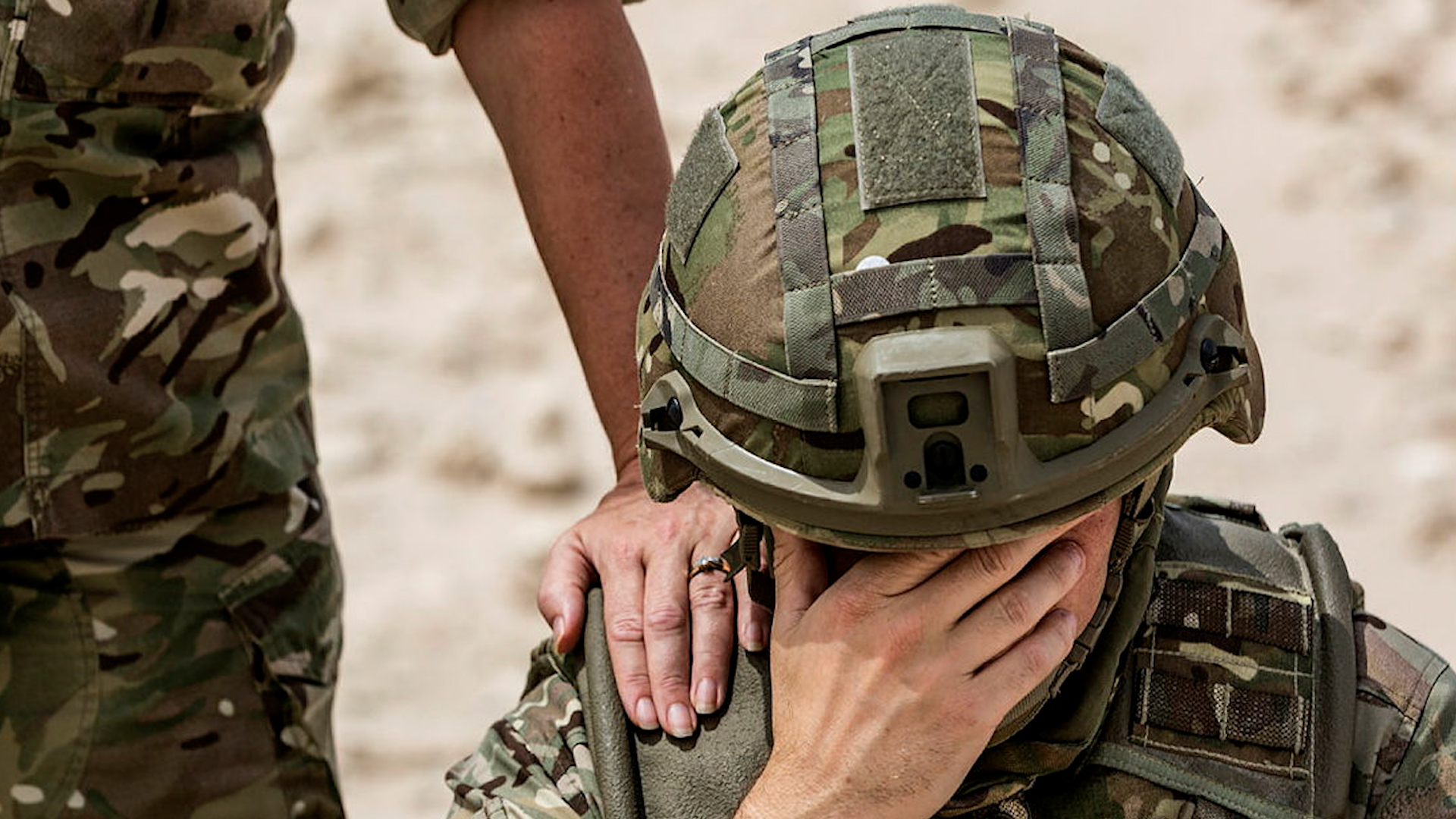
A highly decorated former army bomb disposal officer has accused the British Army of dishing out antidepressants to soldiers with PTSD too easily.
Retired Major Wayne Owers, who was given the drug after being diagnosed with post-traumatic stress disorder (PTSD), told the Telegraph: “The MOD dishes out antidepressants far too easily in my opinion. My dose was increased three times because my body just got used to them”.
He added: “I would spend whole days feeling very dozy or asleep, even though I had told the medics that my PTSD was worse when I was asleep because I suffered from night terrors”.
Maj (Ret) Owers, a bomb disposal expert who won the Queen’s Gallantry Medal, added: “My condition only began to improve after I took myself off them. I have been off them ever since and I can cope very well.”
The MOD has insisted that it is following the NHS ‘standards and guidelines’.
A Ministry of Defence spokesperson said: “All medication prescribed to military personnel is done so by trained medical professionals, in line with NHS standards and guidelines.
“Anti-depressant medication is not solely used to treat depression and individuals suffering from side effects should contact their doctor.”
According to newly-released Freedom of Information statistics obtained by The Sunday Telegraph 27,611 personnel were prescribed antidepressants between 2017 and 2023.
The data also showed that 18,846 troops were given sleeping pills over the same period.
47,000 military personnel are reported to have been prescribed either antidepressants or sleeping pills in the last five years, leading to claims that some drugs are prescribed too readily to troops with mental health problems.
The MOD has said that only 4% of personnel are currently taking antidepressants. The rate for the general public is around 17%.
The number of personnel suffering from PTSD and other mental health conditions has also continued to rise in recent years.
Data has shown that in 2022/23, armed forces personnel seeking mental health support had risen to almost 21,000, (13.2%) from almost 16,000 personnel, in 2012/13 (8.6%).
A survey earlier this month suggested that more than half of Army veterans in England have experienced mental or physical health issues since leaving the Armed Forces.
The survey of 4,910 veterans, commissioned jointly by the Royal College of GPs (RCGP) and the Office for Veterans’ Affairs (OVA), found that 55% have experienced a mental or physical health issue potentially related to their service since returning to civilian life.
More than four in five of those stated that their condition had deteriorated during this time.
Despite this, one in seven said they had not sought help from a healthcare professional, with the most common reasons given they “prefer to manage their issues on their own” and believe a civilian health professional “won’t understand their experiences”.
In light of the findings, a new initiative has been launched by the RCGP with NHS England and the OVA to encourage more GP practices to become “veteran-friendly”.


